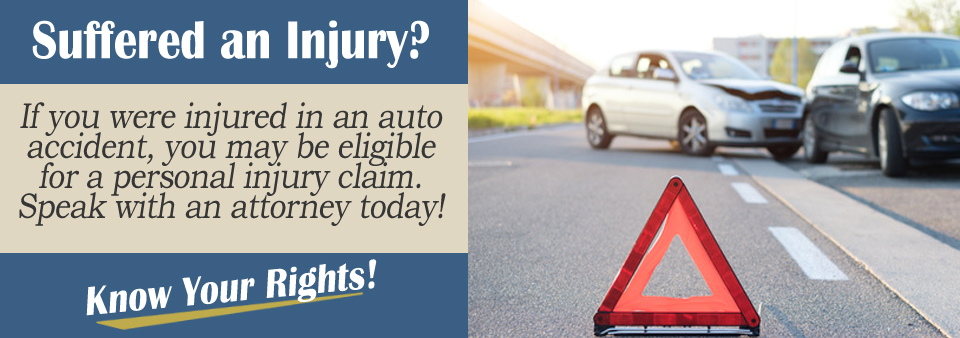For some reason or another, your car was impounded. When you go to pick it up and pay the towing bill and impound storage fees, you find that it is damaged. You want to these damages paid for by the responsible party, but don’t know what to do.
If your car was damaged in the impound lot, can you file for damages? Yes, but you will have to prove that either the towing service or impound lot caused the damage to your vehicle. Impound lots are often owned by government entities, so those claims have different procedures that must be followed. You must file your claim right away and make sure the entire process if followed precisely.
What Should I Do When I Notice Damage?
When you go to pick up your car, notify the impound lot that there is damage that was not previously on your vehicle. Or, if your vehicle has a mechanical issue that did not exist prior to impounding, be sure you tell them. Document the date, time and person you told.
As an example, if your vehicle was towed and will not go in reverse now, but the transmission was fine before, tell a supervisor at the impound lot and tell them you will be filing a claim for damages. Or, if there is a large dent on the hood that was not there before, take a photo of it and notify a supervisor at the lot. Odds are that the impound lot personnel will deny they caused the damage, so you will have to gather documentation and evidence to support your claim.
For the transmission problem, you might have to present witnesses who know your vehicle was operating properly before it was impounded. You might need photos and witnesses to testify there were no dents or damage to your vehicle before it was towed and impounded as well. Evidence and documentation are the keys to a successful claim for your damages.

Damages That May Occur
Damage to your car can easily happen when it is towed to an impound lot and stored there for a certain period of time. The towing company and the agency in charge of the lot, often a government agency, do not own your car.
That means that whoever was responsible for towing and parking it somewhere in the lot doesn’t necessarily take the same amount of care as you do. Accidents can happen on the way to the lot or after it has been positioned somewhere in the lot.
For example, when towing, the mechanical functioning of the car may be damaged, such as the steering system and the transmission. Other parts of the car that could easily be damaged if the tow company isn’t taking enough care are:
- the windshield and side windows;
- side mirrors;
- front or rear bumper;
- any part of the bodywork.
Typical damage done to the body of the car after storage includes:
- scratches;
- dents;
- broken lights;
- broken or torn off mirrors;
- tire damage.
Filing a Claim
If you turn up at the impound lot and find that something has been damaged, you should be able to claim compensation, but you will need to know exactly who damaged it and which company or agency was involved.
Typically, if your car was removed from somewhere for any reason, a private towing company could be used to tow the vehicle to the lot. The lots tend to be government owned. You will need to find out when the damage was done and whether it was the towing company, or it was done inside the lot.
It is best to tell the supervisor at the impound lot straight away about the damage you have discovered. Check carefully to identify every bit of damage that has been done. If you have a camera or a camera app on your cell phone, take photos of the damaged part of the car and make a note about what you have noticed and the person you spoke to at the lot.
You will need to prepare a demand letter to be sent to the tow company’s insurer, if the tow company was responsible for the damage or the government department or agency if it happened at the lot itself.
If a government entity is involved, then bear in mind that you may have far less time to submit a claim and it could take longer to process than a claim against a private company.
Before you send the demand letter, it is important to compile a list of the evidence and documentation you will need to include with the claim. If you have evidence of what the car was like, especially if important functioning parts have been damaged, then this should be obtained.
It is highly likely that both the towing company and the administration in charge of the impound lot will deny any responsibility for the damage to your car. It will be up to you to convince them that the damage was due to their negligence. As long as you can prove that negligence was involved then you should have good grounds to receive compensation.
A list of documentation you should include would be as follows:
- evidence showing that damage was done during the tow or storage in the lot e.g. appearance of the car immediately beforehand or statements from anyone who can vouch for the appearance of the car beforehand;
- damage report from a car repair yard;
- estimate of the cost of repair or replacement of parts and labor involved;
Consult With a Personal Injury Lawyer
If your vehicle has been damaged by impounding, a special process must be followed to file a claim against a government agency, such as a city or county owned impound lot. Without the help of an attorney, your odds of a successful claim to recoup damages are very slim. A personal injury attorney works on a contingency basis, which means you will not have to pay the lawyer until you are compensated for your damages through a judgment or settlement.
A strict statute of limitations applies for pursuing such a claim, so time is of the essence. For a local accident injury lawyer to review your case details and determine the best way to proceed, complete the Free Case Evaluation Form on this page. An attorney will talk with you and get all the details, then determine if you have a claim against the towing company or impound lot then help you proceed with that claim to recover damages.
